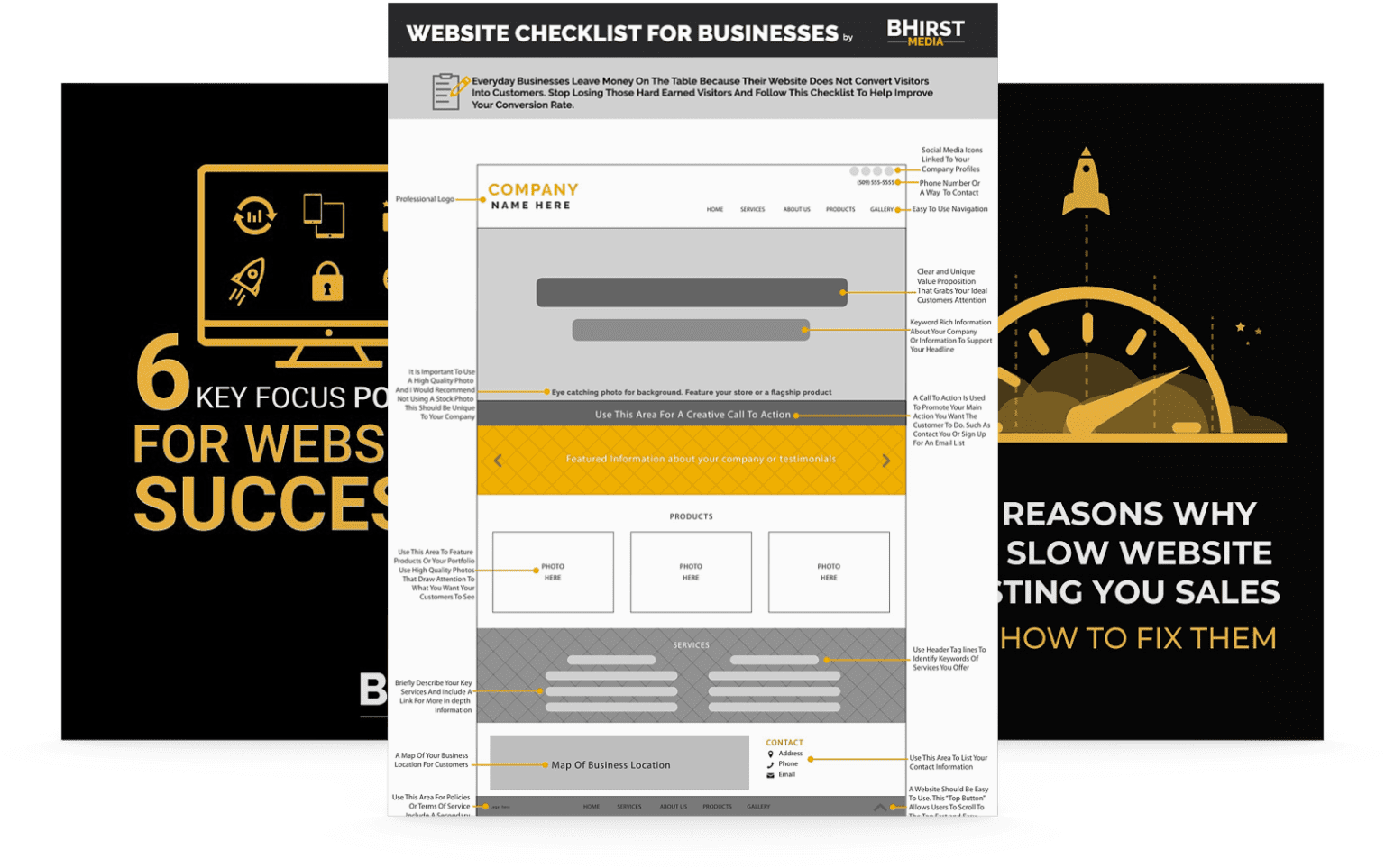
Did you know there are privacy laws when it comes to websites? If you didn’t know, then you are in the right place!
When you run a website, you want to develop a design and hit the ground running. However, there are many legal considerations to contend with before you go “live” to be compliant. Some of those legal considerations surround the issue of privacy.
Users have a right to certain privacies by law, and they also have the right to know what you are doing with their information to protect their privacy. You may not know where to begin, but we are here to help guide you through the privacy policy process.
A website privacy policy is a legal disclosure to visitors. Information that is collected must have a purpose, and that purpose requires disclosure. Visitors must receive notification to make informed decisions with their identity.
There are laws protecting visitors’ identities. These laws allow visitors to know what their information is and why it is needed. Websites must have Terms Of Service Agreements, User Consent, and Cookie Policy/User Cookies Law and be compliant with national and international laws.
A privacy policy is not the same thing as a disclosure, though they are both required. Disclosure is necessary when you have received or could potentially receive income for your products or services. For example, if you utilize affiliate links as an income and content strategy, you must disclose to visitors that you could earn income if they purchase something.
Additionally, if you are reviewing an item, you must reveal that the opinions are your own opinions, and your opinion wasn’t influenced in any way by the products or compensation.
The privacy policy should have its page, and it should be easy to locate on the main menu. Additionally, any place you ask for information should include a link to your privacy policies. The privacy policy must also be able to be read and understood by the average visitor. Stay away from too much legal jargon.
Now that we’ve discussed the privacy policy, here are the five key elements of your website’s privacy policy.
The visitors to your site need to know what information is necessary for collection. Often it may just be a first name and email address. However, they need to see if you collect anything else such as credit cards, home address, social security number.
Once the data is collected, what does the website use it for? For example, you gather information to create an account so repeat customers can simply sign in and not rekey the information each time. It also allows the user to see previous orders and wishlist items. Disclose this information in the privacy policy.
What information is stored by the website? For example, a user’s name, address, and email address remain in the database to process activity with their account rather than a guest. On the other hand, a blogger may host a giveaway for an item and collect home addresses. In the case of a giveaway, the blogger should make it clear the information is used for that giveaway only and not stored anywhere for any future use.
Ideally, a user can expect that a website will not share their personal information. However, in some cases, they do. So, whichever you are doing on your website, it needs to be in the privacy policy to know what to expect.
The privacy policy should provide a way for a user to easily access a way to contact you. For example, the user should not be required to go to another page to find your contact information.

There are a variety of ways a website can share information. Some are very obvious for a user, while others may not be. Keep both obvious and not so much in mind when developing your privacy policy.
Shipping is rather obvious for the user. If they are purchasing an item online, they know the website needs an address and some form of payment. Without this information, the purchase can’t proceed, nor can it be shipped.
Websites and businesses want to be sure their customers are satisfied. Certain information is necessary to facilitate this information. Additionally, following up with previous customers is a great way to offer them deals for repeat purchases. Once you have a customer, you want them to remain a customer.
Businesses will periodically send announcements for seasonal sales, industry-related information, holiday changes such as hours, and more.
There are times when third parties may have access to website data. For example, you need a third party to work on your site or process updates. Make it clear you are not selling data to third parties.
Your website needs a privacy policy because the policy provides legal protection for your website. In addition, users have a right to know what their information is for and why. There are many reasons why you need a privacy policy and some reasons why you want one even if it wasn’t required.
Failure to have a privacy policy can lead to fines. Many states and countries require a privacy policy. In the United States, the Federal Trade Commission can issue penalties for lack of a privacy policy.
Google requires a privacy policy. Let’s face it — they have a great deal to do with a website’s success. Failure to have an active policy could result in Google banning your site, which will prohibit your ability to make money online.
There are also requirements for websites and children. For children under the age of 13, you must comply with the Children’s Online Privacy and Protection Act (COPPA).
Lastly, you want your customers to trust you, and disclosing everything required in a privacy policy helps build that trust and create a lasting relationship.
In 2018 the European Union developed the European Privacy Regulation. This lead to the creation of the General Data Privacy Regulation (GDPR). The GDPR says that personal data is any information related to a person. And as individuals, they have eight fundamental rights to:
GDPR compliance is for organizations established in the European Union (EU). It doesn’t matter if the business is in another country. If it still services citizens of the EU, you must comply. Privacy policies are a serious matter, and some large companies face hefty fines for incomplete compliance. There is a lot to consider no matter what field your business is in and if you have the means, hire or work with a data privacy officer.
What types of information are collected? The user needs to know what they will potentially be providing and why, even behind the scenes. If users can get to your website, the law requires you to have a privacy policy.
Here are some types of information your website collects.
Personal information can include name, address, phone number, email address, credit card information, and more. Although providing the information on the site is voluntary, it is clear that some or all of the site may not be accessible without it. For example, if a user isn’t willing to provide credit card information, they can’t purchase online.
How are users accessing the site? Are they entering directly from a web browser or through a social media platform? What marketing method is working the best? Data also can be used to monitor if all features of the site are working correctly or not.
Cookies are a way for a user experience to be better. Cookies can store a user’s password for easy login in the future. They can also allow the website to tailor discounts and services based on the user’s previous activity. Users can opt-out of cookies, but it could mean they can’t fully experience the website and its products or services.
Text messaging is relatively new for businesses. This marketing strategy has proven to be quite successful. Users can opt out of texts, but they may miss awesome deals if they do. For example, Michael’s Crafts can text you deals the second you walk into one of their stores. These deals may not otherwise be accessible. Perfect if that is what you are looking for, but opt out if you find it annoying.

The privacy policy should have its own page. The policy should be easy to locate on the main menu. Additionally, any place you ask for information should include a link to your privacy policies. The privacy policy must also be able to be read and understood by the average visitor. Stay away from too much legal jargon.
Now that you know what a privacy policy is, why you need it, and where to place it on your website, you can protect your customers.
Your website sets the stage for all communications and interactions with your customers. So let’s make sure these interactions are all legally compliant.
At Bhirst Media, we have experience building websites for various customers and a variety of different needs. We understand what it takes to build a website that looks good, is optimized for search engines, and is designed for lead generation.
You don’t have to try and do this alone — let us help. Check out our website design, development, and website care plans today.
